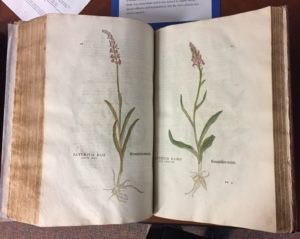At the opening session of this year’s Examined Life Conference, a genetics specialist read a reflection about a difficult case. Her writing told us about her quest to diagnose a child’s disease no one else had been able to figure out, and how her own mental health suffered in the process.
In the end, she reflected, it wasn’t a brilliant medical insight that changed the lives of the patients’ family. It was a few minutes alone with the child’s mother, who confessed the care of her severely disabled child was becoming too much to bear. After finishing reading her piece, she thanked us in turn for the chance to be heard. The simple fact she told us about the encounter kept coming back to me: “So I sat and listened.”
When I attended last year’s Examined Life, I was excited and nervous. It was my first time presenting my work at the conference. My presentation was towards the end, so even though I was present, I had a lot more to think about than just sitting and listening.
Today was good for sitting and listening to others. It was also good for sitting and listening to myself. I came up with plenty of excuses why certain workshops weren’t for me, when really I was just scared I might have to speak or perform in front of a group. I went to all the workshops that really scared me, and I’m so happy I did.
Last year, I visited the John Martin Rare Book Room, and I was happy to go back this year. This year’s exhibition features books that informed Shakespeare’s medical understanding, or were at least contemporaries of his. I love old books, and books don’t get any older than this. It’s one of my favorite spots on campus.

The day ended with a keynote by Sarah Smarsh, talking about her book Heartland. Her book is about rural America, wealth inequality, and how those intersections (including healthcare) play out in the life of working people.
Sitting and listening to hear speak, I heard a lot of my own story. My sister and I were delivered by one of the last of the generational small-town doctors. I was reminded that our push for better care and better outcomes isn’t worth much if it excludes demographics implicitly deemed inconvenient.
A conference like Examined Life is wonderful for, well, examining. I sat and listened and reflected, and what I heard was a challenge to go back out into the world.